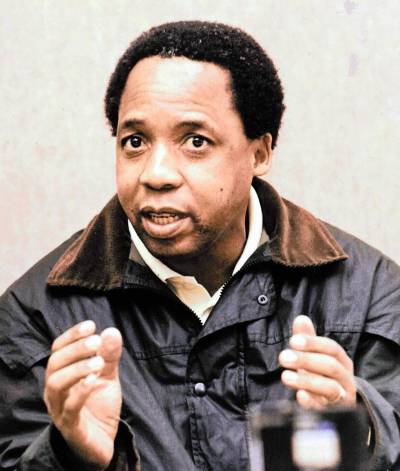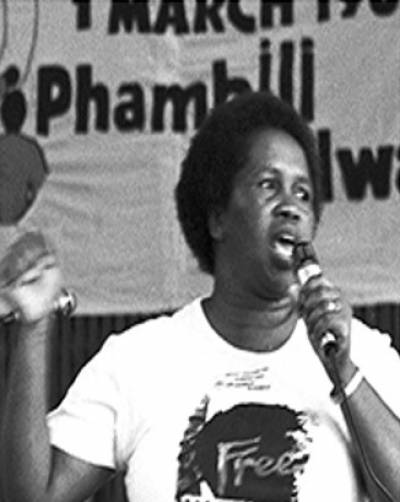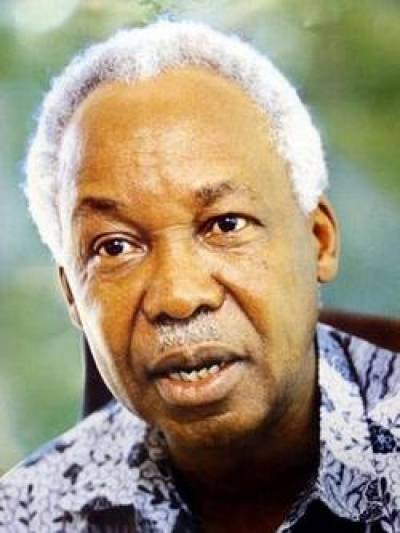Some lesser-known figures from recent African History: who they are & why you should know about them
2 October 2019
As part of our Black History Month celebrations, we spoke to Dr Tim Gibbs about some African historical figures that we might not have heard of, but should definitely know about! Dr Gibbs is a lecturer in African History at UCL, with a particular focus on South Africa.

Chris Hani (1942-1993)South Africa’s Che Guevara: an inspiring guerrilla commander committed to socialist revolution, who was murdered at the height of his fame.Unlike the solidly upper-middle-class Guevara, Hani grew up in rural obscurity, walking across the hills to primary school in bare feet each day. His route out of poverty was a series of scholarships that took him to university. Here, he joined Nelson Mandela’s African National Congress – and so, like many young activists, fled South Africa in 1963, during an apartheid crackdown that sent many more to Robben Island. In exile Hani made his name as a guerrilla leader. He organised some of the most effective units that carried out audacious (sometimes murderous) bomb attacks on ‘White South Africa’. He was also a ruthless bureaucratic infighter, standing up to the perceived corruption of older exile leaders. His personal courage was legendary too. These credentials made Hani the de-facto leader of the ‘radicals’/‘hawks’ during South Africa’s democratic transition in the early 1990s. This placed him against Nelson Mandela, who was successfully winning over world opinion to the anti-apartheid cause by diluting the influence of the South African communists. Hani stayed well away from the plush hotels in which Mandela’s team conducted the negotiations with the apartheid government. Instead, during a quasi-civil war, in part orchestrated by apartheid security forces, which consumed close to 20,000 lives, he organised the ANC’s Self Defence Units. Hani’s murder – by white supremacists in 1993 – effectively killed any socialist challenge to Nelson Mandela’s authority over the ANC. It is Mandela who won international renown and a Nobel Peace Prize; but Hani’s legacy lives on in many of the squatter camps and shack settlements that still carry his name.
 |
Jabu Ndlovu (1947-1989)Might be thought of South Africa’s La Pasionara: a trade unionist famed for her courageous speeches, who rallied embattled communities during South Africa’s civil war.Like many of her generation, Jabu journeyed to the cities of in search of work, after a teenage pregnancy brought her education to a stop. Apartheid’s industrial boom was creating feminised labour forces in the new factory estates sprouting on the urban fringes. Working in a kitchenware factory in the cathedral city of Pietermaritzburg, Jabu Ndlovu discovered the trade unions and soon made her name for the deft manner in which she handled strikes and confrontations. She was also known as an effective supporter of fellow women leaders in what was then a macho trade union movement. The foundations of Jabu’s political success lay in her strong family life. Unlike many female political leaders abandoned by jealous spouses, Jabu Ndlovu married her childhood sweetheart. The Ndlovus ran a happy home: their small four-room township house, bursting full of furniture and kitchenware, providing shelter to destitute neighbours, itinerant trade unionists and political dissidents. The house became a refuge when the civil war, which would soon grip all of South Africa, broke out first in her home city in 1985. Jabu Ndlovu was fearless – telling meetings that The Mothers had the duty to save their children and communities from the scourge of war and criminality. Her outspokenness killed her. In 1989, a vigilante gang – possibly armed by apartheid security forces – burned-down the Ndlovu home, murdering Jabu, her husband, and eldest daughter. Such killings of an entire generation of civic activists carried a heavy price. After the end of apartheid, the governing ANC named a central street in Pietermaritzburg in honour of Jabu Ndlovu. But by now local party branches were run by corrupt carpetbaggers, whose fierce competition for government office twice bankrupted the city. Jabu Ndlovu Street was most recently in the news when the ANC offices in the street were mysteriously arsoned – likely a crooked politician covering his tracks.  |
Julius Nyerere (1922-1999)The president of post-colonial Tanzania and philosopher of African Socialism. His policies ran the economy into the ground, but the memory of his statesmanship is cherished.Whilst many post-colonial presidents preached socialism, it was Julius Nyerere who worked-out a thoroughgoing programme of a distinctively African socialism rooted in the soil of peasant communities. Nyerere was inspirational: he drove a modest car and published huge tomes of his collected speeches. He made Tanzania the centre of radical post-colonial politics. Chinese experts built infrastructure and railroads; political exiles found shelter; the University of Dar-es-Salaam pioneered new nationalist histories of the continent. Yet Nyerere’s reputation outlasted the failure of his polices and his death in 1999. Tanzania may be wealthier; but it is also more unequal and politically fragile. Now a younger generation recall how his statesmanship once gave a small, poor country cohesion of sorts, and a powerful voice on the global stage.  |
 Close
Close

